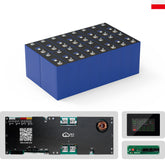Choosing Between AGM and Lithium Batteries for Motorcycles
When it comes to choosing the right battery for your motorcycle, the decision between AGM (Absorbent Glass Mat) and lithium can significantly affect your bike’s performance, reliability, and long-term cost. Riders often struggle with this choosing process, especially since both options have their own distinct advantages. This guide is designed to help you make an informed decision by comparing these two popular battery types in detail.
- Choosing the Right Battery Technology for Your Motorcycle
- Choosing Based on Performance Needs
- Choosing a Battery Based on Lifespan and Durability
- Choosing Based on Maintenance and Usability
- Choosing with Cost in Mind
- Choosing for Specific Motorcycle Types
- Choosing with Environmental Impact in Mind
- Choosing a Battery Based on Storage and Self-Discharge
- Choosing for Safety and Reliability
- Choosing What’s Right for You: A Side-by-Side Comparison
- Choosing the Right Brand and Model
- Choosing Wisely: Final Thoughts
Choosing the Right Battery Technology for Your Motorcycle
Understanding the nuances between AGM and lithium batteries is essential when choosing what powers your motorcycle. Let’s begin with the fundamentals of each battery type.
What Is an AGM Battery?
AGM batteries are a type of lead-acid battery where the electrolyte is absorbed into fiberglass mats. This design makes them spill-proof, maintenance-free, and highly durable.
What Is a Lithium Battery?
Lithium motorcycle batteries are made from lithium iron phosphate (LiFePO4), which offers high energy density, lightweight construction, and extended lifespan. They’ve gained popularity in recent years for high-performance bikes and racing applications.
Choosing Based on Performance Needs
Performance is a key factor for many riders when choosing between AGM and lithium batteries.
Cranking Power and Cold Starts
Lithium batteries generally outperform AGM in cold cranking amps (CCA), making them more reliable in cold weather. However, some lithium batteries may require a warm-up cycle in extremely low temperatures.
Weight Considerations
If you're choosing based on weight alone, lithium batteries have a clear advantage. They can be up to 70% lighter than AGM batteries, improving acceleration, handling, and fuel efficiency.
Voltage Stability
Lithium batteries maintain a more stable voltage throughout their discharge cycle. For riders with electronic accessories or fuel-injected engines, choosing a battery with consistent voltage is crucial.
>>See also How to Know if Your 12 Volt Battery Is Going Bad
Choosing a Battery Based on Lifespan and Durability
How long a battery lasts and how well it handles stress are important criteria when choosing between AGM and lithium options.
AGM Battery Lifespan
An AGM battery typically lasts 2 to 5 years, depending on use and maintenance. Their sealed design protects against leakage and vibration damage.
Lithium Battery Lifespan
Lithium batteries offer a significantly longer service life—often 5 to 10 years. Some high-quality lithium batteries can even last more than a decade with proper care.
Vibration Resistance
When choosing a battery for off-road or adventure motorcycles, vibration resistance becomes critical. Lithium batteries generally perform better under high-vibration conditions.
Choosing Based on Maintenance and Usability
Ease of use is another consideration for riders choosing a new motorcycle battery.
AGM Battery Maintenance
AGM batteries are marketed as "maintenance-free," but they still require periodic checks to ensure charge levels remain optimal.
Lithium Battery Maintenance
Lithium batteries need less attention overall, though they may require a battery management system (BMS) to prevent overcharging or deep discharge. Most modern lithium batteries include built-in BMS units.
Charging Requirements
When choosing, consider that lithium batteries may need a compatible charger. Using a standard lead-acid charger can damage them unless it has a lithium mode.
Choosing with Cost in Mind
Cost is often the deciding factor for riders choosing between battery types.
Initial Purchase Price
AGM batteries are significantly cheaper upfront. If you're budget-conscious, this might influence your choosing decision.
Total Cost of Ownership
While lithium batteries cost more initially, they last longer and perform better, potentially offering a better return on investment over time. If you’re planning to keep your motorcycle for years, choosing lithium may actually save you money in the long run.
Choosing for Specific Motorcycle Types
Different motorcycle types have different power demands, which should guide your choosing process.
Cruisers and Touring Bikes
These bikes typically have moderate energy needs. AGM batteries are often sufficient, though lithium can still offer added reliability.
Sport and Racing Motorcycles
For performance machines, choosing lithium is almost always the better option. The weight savings and voltage stability are particularly beneficial at high speeds.
Adventure and Off-Road Motorcycles
Given the harsh conditions these bikes encounter, choosing a rugged and lightweight lithium battery can be a smart decision.
Choosing with Environmental Impact in Mind
If sustainability matters to you, consider the environmental footprint when choosing a battery.
AGM Batteries and Recycling
AGM batteries are recyclable, but they contain lead and sulfuric acid, which pose environmental hazards if not handled properly.
Lithium Battery Environmental Impact
Lithium batteries are more environmentally friendly in terms of emissions and lifecycle energy use, although their production process involves mining rare earth elements.
Choosing a Battery Based on Storage and Self-Discharge
Storage behavior matters for seasonal riders who park their bikes for extended periods.
AGM Self-Discharge Rate
AGM batteries tend to lose charge more quickly when not in use, especially in colder climates.
Lithium Self-Discharge Rate
Lithium batteries have an impressively low self-discharge rate—ideal for winter storage or bikes not used daily. If storage stability matters, choosing lithium is clearly beneficial.
Choosing for Safety and Reliability
Riders also prioritize safety when choosing a motorcycle battery.
AGM Battery Safety
AGM batteries are generally safe, with a sealed construction that prevents leaks. However, overcharging or physical damage can lead to outgassing or even explosion.
Lithium Battery Safety
Modern lithium batteries with integrated BMS units are very safe. However, using incompatible chargers or puncturing the battery can be dangerous. Stick with reputable brands when choosing lithium options.
Choosing What’s Right for You: A Side-by-Side Comparison
|
Feature |
AGM Battery |
Lithium Battery |
|
Weight |
Heavier |
Much lighter |
|
Lifespan |
2–5 years |
5–10+ years |
|
Maintenance |
Moderate |
Very low |
|
Initial Cost |
Lower |
Higher |
|
Charging |
Standard charger OK |
Requires lithium-safe charger |
|
Performance |
Good |
Excellent |
|
Vibration Resistance |
Moderate |
High |
|
Voltage Stability |
Moderate |
High |
|
Storage |
Loses charge faster |
Holds charge longer |
This table should assist anyone choosing between these battery types with a side-by-side breakdown of key attributes.
>>See also Understanding if lithium batteries are rechargeable
Choosing the Right Brand and Model
Even after settling on a battery type, brand selection is critical. Look for:
Proven track records
Strong warranties (2–5 years for AGM, up to 10 years for lithium)
Built-in BMS for lithium options
Compatibility with your motorcycle model
Brands like Yuasa, Antigravity, Shorai, and Battery Tender are trusted names in the motorcycle community. When choosing, prioritize customer support, availability, and reputation.
Choosing Wisely: Final Thoughts
In conclusion, choosing the best battery for your motorcycle involves balancing performance, budget, maintenance, and safety. AGM batteries are a dependable choice for many standard riders and daily commuters. However, if you demand the best in weight savings, lifespan, and reliability—and don’t mind the higher upfront cost—choosing a lithium battery is often the smarter move.
Whether you're a weekend cruiser or a track-day enthusiast, choosing the right battery can greatly enhance your riding experience. Evaluate your needs, research trusted brands, and invest wisely. Your motorcycle deserves nothing less than the perfect power source.
Ultimately, choosing between AGM and lithium batteries comes down to your priorities. Make sure your choice supports your bike’s performance and your personal riding goals.
























Leave a comment
All blog comments are checked prior to publishing